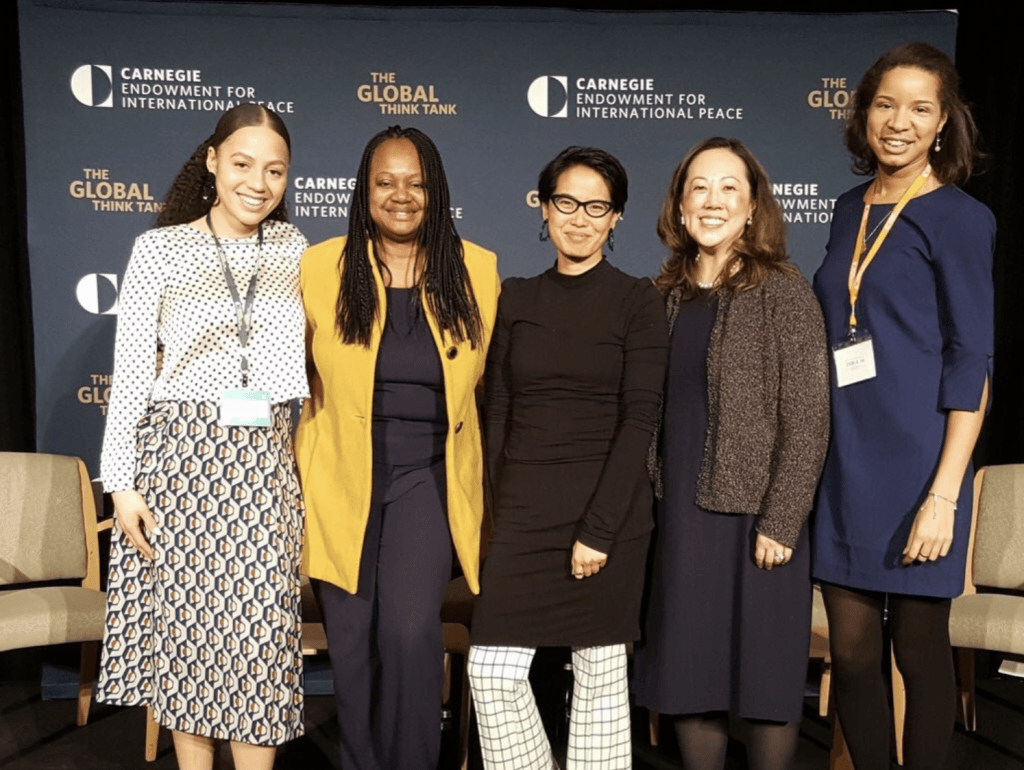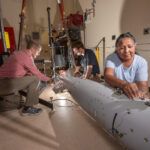A #nukefest manifesto. Or critique, at least.
By John Mecklin | March 19, 2019
 A photo posted to Twitter with this caption: "Not every day that a nuclear policy conference panel looks like this. Thanks @carnegienpp for the opp to discuss diversity at #nukefest"
A photo posted to Twitter with this caption: "Not every day that a nuclear policy conference panel looks like this. Thanks @carnegienpp for the opp to discuss diversity at #nukefest"
In the world of nuclear policy wonking self-examination, Tuesday belonged to Matt Korda, a research associate for the Nuclear Information Project at the Federation of American Scientists (and a co-author of the Nuclear Notebook column that the Bulletin has published since 1987). In his essay for Inkstick, “At #NUKEFEST, we asked all the wrong questions,” Korda asserted that last week’s Carnegie Nuclear Policy Conference had failed to address the “single most important issue within the nuclear field—the health and sustainability of the field itself.”
Yes, those are his emphatic italics, and they preceded his bombshell of a thesis:
If you had your ear to the ground during the conference, you’d likely be aware that young people are becoming increasingly unhappy in the nuclear policy community. Many are having trouble finding fulfillment in their work, and quite a few are looking to leave the field altogether.
This undercurrent of frustration is exacerbated by several factors, none of which should surprise anyone: nuclear policy organizations are typically too white, too male-dominated, too elitist, and too reliant on stale thinking; class and socioeconomic distinctions are rarely acknowledged (Nukefest costs approximately $400 to attend, ‘nuff said); work-life balance is basically non-existent; and creative, emerging voices are often ignored due to a “lack of experience.”
The Carnegie conference (known often as #nukefest, as strange and off-putting as that nickname may seem to those outside the nuclear field) is held every two years, and attendees include a Who’s Who of current and former government figures, think tankers, academics, journalists and rising stars with significant connection to the nuclear policy field. Korda offered carefully measured praise for this year’s event, noting that its panels, for the first time ever, exhibited gender parity, and that it included early-morning side workshops dealing with diversity, mentorship, and engaging youth. These were a nice start in the right direction, Korda said, but “in my conversations with younger and mid-career attendees, there was near-unanimous agreement that these types of panels should, in fact, constitute the main thrust of the conference. In truth, the field doesn’t need yet another headline panel on arms control—we have dozens of these every year. However, we desperately need a panel like ‘Controlling Your Arms: Tackling Sexual Harassment in the Workplace.’ We don’t need another panel on nuclear parity, but we certainly need one on gender parity. Strategic stability? Why not swap it out for a panel on work-life stability?”
If you know much about the nuclear policy field and its denizens, you probably suspect that Korda’s piece kicked off a lively social media discussion. It did, and you can start to parse it here:
Very excited to publish my first *ever* @inkstickmedia piece, in which I consider how #nukefest failed to address the most critical issue in the nuclear field:
The health and sustainability of the field itself.https://t.co/VwoNUJdByZ
— Matt Korda (@mattkorda) March 19, 2019
Together, we make the world safer.
The Bulletin elevates expert voices above the noise. But as an independent nonprofit organization, our operations depend on the support of readers like you. Help us continue to deliver quality journalism that holds leaders accountable. Your support of our work at any level is important. In return, we promise our coverage will be understandable, influential, vigilant, solution-oriented, and fair-minded. Together we can make a difference.
Topics: Nuclear Risk, What We’re Reading














